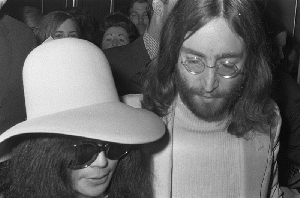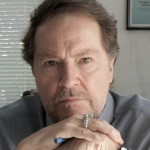"You gotta remember, establishment, it's just a name for evil. The monster doesn't care whether it kills all the students or whether there's a revolution. It's not thinking logically, it's out of control."--John Lennon (1969)

John Lennon & Yoko Ono leave Amsterdam
(Image by (From Wikimedia) Eric Koch / Anefo, Author: Eric Koch / Anefo) Details Source DMCA
John Lennon, born 75 years ago on October 9, 1940, was a musical genius and pop cultural icon.
He was also a vocal peace protester and anti-war activist and a high-profile example of the lengths to which the U.S. government will go to persecute those who dare to challenge its authority.
Long before Chelsea Manning and Edward Snowden were being castigated for blowing the whistle on the government's war crimes and the National Security Agency's abuse of its surveillance powers, it was Lennon who was being singled out for daring to speak truth to power about the government's warmongering, his phone calls monitored and data files collected on his activities and associations.
For a little while, at least, Lennon became enemy number one in the eyes of the U.S. government.
Years after Lennon's assassination it would be revealed that the FBI had collected 281 pages of files on him, including song lyrics, a letter from FBI Director J. Edgar Hoover directing the agency to spy on the musician, and various written orders calling on government agents to set the stage to set Lennon up for a drug bust.
As the New York Times notes, "Critics of today's domestic surveillance object largely on privacy grounds. They have focused far less on how easily government surveillance can become an instrument for the people in power to try to hold on to power. 'The U.S. vs. John Lennon' " is the story not only of one man being harassed, but of a democracy being undermined."
Indeed, as I point out in my book Battlefield America: The War on the American People, all of the many complaints we have about government today--surveillance, militarism, corruption, harassment, SWAT team raids, political persecution, spying, overcriminalization, etc.--were present in Lennon's day and formed the basis of his call for social justice, peace and a populist revolution.
(Note: You can view every article as one long page if you sign up as an Advocate Member, or higher).





